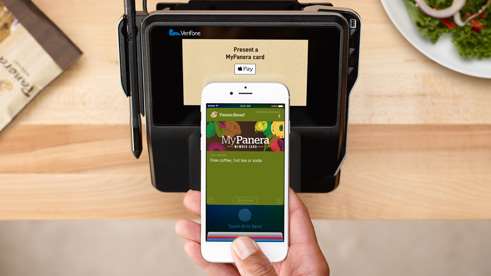Three of Australia’s big four banks have launched a last-ditch bid to convince regulators to break Apple Pay’s grip on the iPhone.
CBA, NAB and Westpac joined Bendigo and Adelaide Bank back in July in urgently applying to the Australian Competition and Consumer Commission (ACCC) for permission to jointly negotiate against Apple.
The banks want to offer their own mobile wallet services to iPhone users, and have been holding out from signing up to Apple’s own service, Apple Pay, over a long-running dispute over fees.
They said they had all but given up on being able to negotiate access to the iPhone individually, and had sought to form a syndicate with enough power to challenge Apple – and hoped to gain permission to do so within 28 days.
However, the plan hit a snag in August when the ACCC refused to provide “interim authorisation” for the syndicate, believing it had not had time to properly evaluate the impact.
“The ACCC does not see compelling reasons to support the urgency of the application,” it said.
The regulator had sought submissions from 80 industry players, of which only six made the banks’ imposed cut-off.
More have trickled in over the past month, and with a “draft decision” on the syndicate now looming, the banks have made a last-ditch attempt to convince the regulator to side with them.
The 137-page submission, dated September 30 but only released yesterday, expands on many of the core reasons why the banks argue their mobile banking apps should be allowed to make use of the NFC chip on iPhones.
By using their own mobile wallet apps rather than Apple's, the banks have more control over payment security and risk; in their latest submission, they cast doubt on whether Apple's own payments system is secure enough.
"The applicants also want to ensure Apple Pay operates in an environment that maintains the levels of security and transparency that apply to other payment options," the submission said.
"There is no doubt that mobile payments will be enthusiastically adopted by many Australians.
"However, consumers who do not want to use integrated wallets such as Apple Pay should not be exposed to the cost of inconsistent approaches to security or to hidden costs that benefit Apple but make payments more expensive for everybody else."
However, the potential impact of Apple Pay is also a concern. The lone 'big four' bank to agree to Apple's terms - ANZ - is seeing the effects of iOS loyalty first-hand, and it appears to be enough to worry those still holding out.
"Apple has around a 40 percent share of the smartphone market in Australia and controls a critical segment of mobile phone users," CBA, Westpac, NAB and Adelaide said.
"It is clear that customers are far more likely to change cards in order to use Apple Pay than they are to give up their iPhones in order to use mobile payments, as demonstrated by the increase in card applications reported by ANZ Bank since it launched Apple Pay.
"This results in a significant disparity in bargaining power between Apple and any Australian card issuer when it comes to negotiating the terms of Apple Pay, and these are precisely the circumstances in which collective negotiations are recognised to promote fairer and more efficient outcomes, and collective boycotts may be required to bring a more powerful party to the negotiating table."
A spokesperson for the proposed syndicate, Lance Blockley, said in a statement that the thrust of its arguments against Apple Pay remain the same.
“This is about the future of mobile payments in Australia. Will it be ‘Apple's way or no way’, or a genuine level playing field so all consumers can have the best digital services, no matter what device they own," he said.
A draft decision by the ACCC is expected this month.









